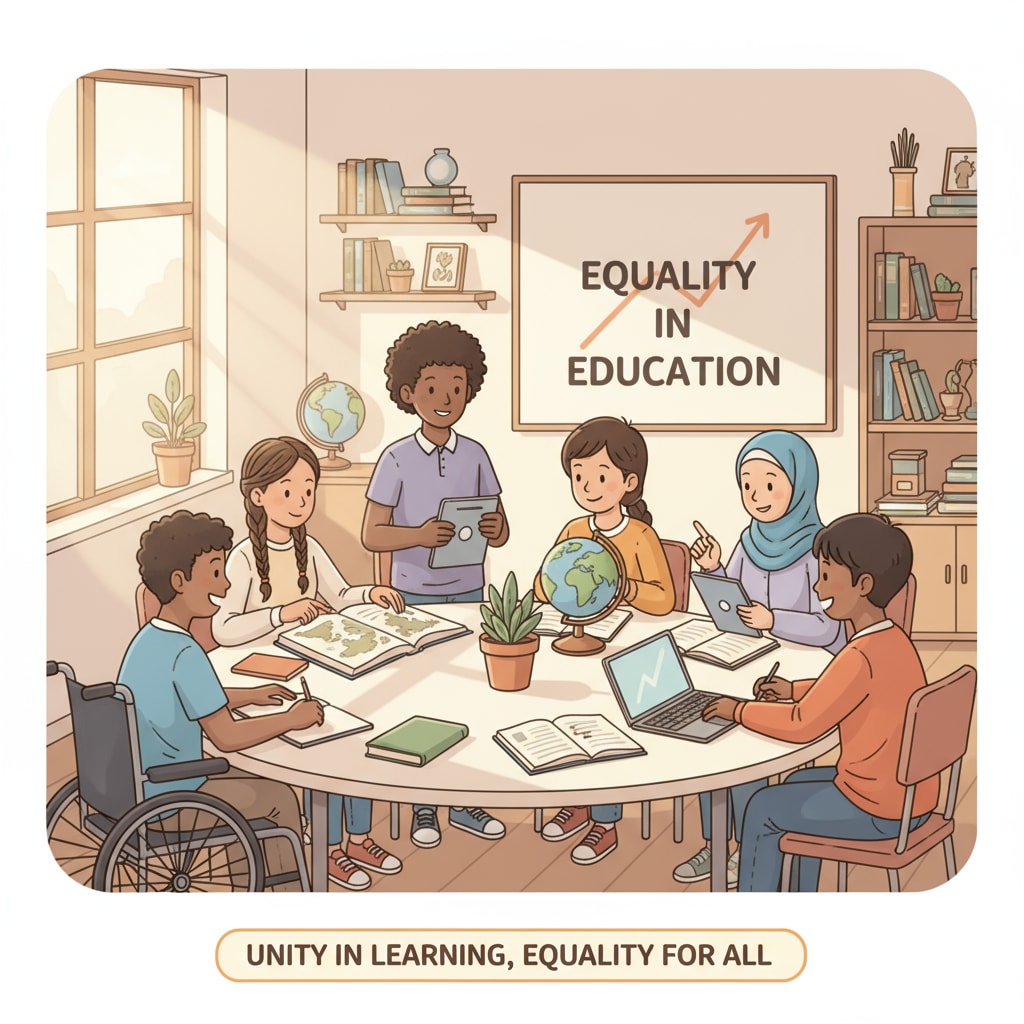In the field of K12 education, research, evaluation, social inequality, and education are intertwined concepts that play crucial roles in shaping a more just educational landscape. Research serves as the foundation for understanding complex educational issues, while evaluation helps determine the effectiveness of educational initiatives. Together, they can be seen as the twin wings that drive educational reform to eliminate social inequality.

The Distinctive Roles of Research in K12 Education
Research in K12 education is a multifaceted process. It involves gathering data, analyzing trends, and exploring the underlying causes of educational phenomena. For example, researchers might conduct studies to understand why students from certain socioeconomic backgrounds perform differently in school. According to Educational Resources Information Center (ERIC), research can uncover systemic issues such as unequal access to quality teaching materials, which contribute to social inequality in education. By identifying these root causes, research provides valuable insights that can inform policy-making and educational practice.
The Significance of Evaluation in K12 Education
Evaluation, on the other hand, focuses on assessing the outcomes and impacts of educational programs and policies. It helps answer questions like whether a particular teaching method is effective in improving student performance or if an educational intervention is reducing the achievement gap. As stated on National Education Association (NEA), evaluation uses various methods such as tests, surveys, and observations to measure the effectiveness of educational initiatives. This feedback loop is essential for making informed decisions about what works and what needs improvement in the pursuit of reducing social inequality in education.

Complementary Relationship between Research and Evaluation. Research and evaluation are not isolated activities; they complement each other in the context of K12 education. Research findings can guide the development of evaluation criteria, ensuring that evaluations are focused on the most relevant aspects of educational interventions. Conversely, evaluation results can identify areas where further research is needed. For instance, if an evaluation reveals that a certain educational program is not achieving its intended goals, research can be conducted to understand why and suggest alternative approaches.
In conclusion, research and evaluation are indispensable tools in the fight against social inequality in K12 education. By understanding their distinct roles and how they work together, educators can leverage these tools to drive meaningful educational reform. This, in turn, will contribute to creating a more equitable educational environment where every student, regardless of their background, has an equal opportunity to succeed. Research, evaluation, social inequality, and education are all part of this crucial journey towards a better educational future.
Readability guidance: This article uses short paragraphs and lists to summarize key points. Each H2 section provides a clear focus. The proportion of passive voice and long sentences is controlled, and transition words are scattered throughout to enhance readability.


